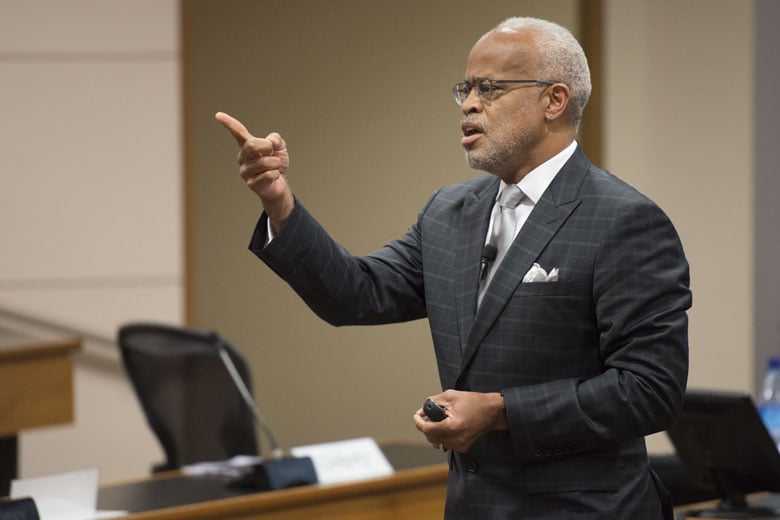The Faculty Senate convened for the first time this academic year on Thursday, Sept. 24 to discuss OpenXChange, the University’s new program for encouraging open dialogue between students, faculty and administrators surrounding important and often sensitive political and social issues.
The program was spurred by serious campus-wide debates and concerns raised last school year surrounding racial inequality, divestment and sexual assault.
According to the Stanford Report, Vice Provost for Undergraduate Education Harry Elam commented at Thursday’s meeting that many students felt that the University had failed to act or respond appropriately to the questions raised about these issues.
“There was a feeling of fracture,” Elam said. “Many wondered what should be the role of the university? What should be the role of higher education?”
At Thursday’s meeting, Elam solicited the help of Stanford faculty in order to make the program a success.
Faculty will be able to participate in dialogue through hosting open office hours and by suggesting forums, workshops and new courses. One such course on the Middle East is already in the process of being designed, according to the Stanford Report.
The Student Advisory Board is also getting involved, and “Build it, Lead it grants” are being made available to students who want to initiate their own OpenXChange projects.
“We are really concerned to hear the voices of all students,” said dean for religious life Reverend Jane Shaw at the Senate meeting. “We would like to hear from them all.”
An OpenXChange listening tour, which began Sept. 21, is currently taking place in dining halls across campus and will continue through Oct. 1. Planned speakers include political satirist Bassem Youssef on Sept. 28 and actor Anna Deavere Smith, who will address racism and nonviolent resistance on Oct. 21.
A new theme will be addressed each quarter of this year-long initiative. The theme for fall is “Stanford and the World,” meant to address global issues. The winter theme will be “Stanford and the Nation” and will include discussions about racial discrimination and the criminal justice system. Lastly, the spring theme, “Stanford and the Community,” will address social inequality and the arts.
Contact Erica Evans at elevans ‘at’ stanford.edu.
